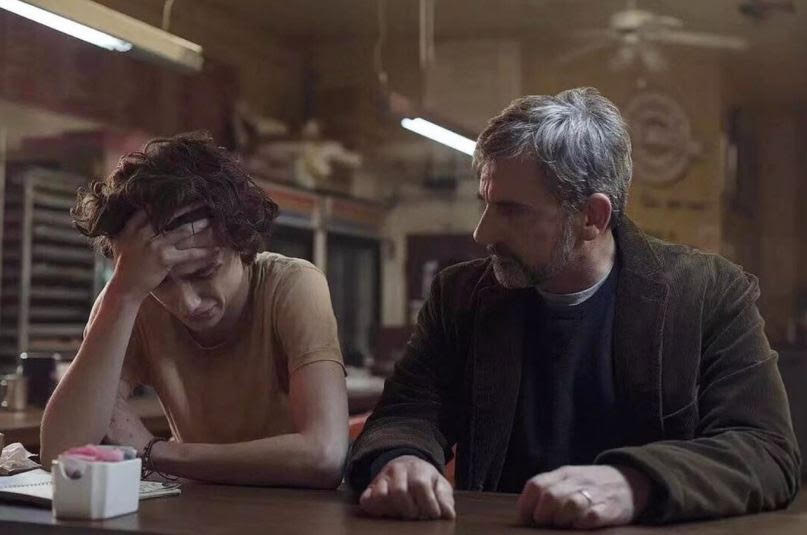ADDICTION: Timothée Chalamet and Steve Carell portray Nic and David Sheff in a bittersweet adaptation of the best-selling memoirs Beautiful Boy and Tweak.
By Crystal Hsueh, Staff Writer
Making its world premiere at the 2018 Toronto International Film Festival, Beautiful Boy depicts the story of a young man, raised with promise and opportunity, who falls into lust with alcoholism and drug addiction, crystal methamphetamine being his drug of choice. Struggling to cope with his parents’ divorce at a young age, Nic Sheff found solace in reading poetry, listening to music, writing, and drawing. However, after getting drunk for the first time at the age of 11, Nic began to seek comfort in smoking marijuana and drinking alcohol.
Throughout the film we see Nic falling deeper and deeper into his addiction with meth, constantly walking the fine line between relapse and recovery that his father continuously tried to save him from. Interchanging between the perspective of the addict and his father, the film illustrates a bittersweet relationship between father and son. Although the affection between the two characters is still deeply expressed through scenes such as David telling a young Nic that he loves him more than everything, their bond sours as each encounter becomes increasingly filled with mistrust and deception, vacillating between Nic’s relapses and David’s wary accusations.
Centered around Nic and David’s relationship throughout Nic’s addiction, the movie left out some critical details in both storylines, such as Nic’s experiences selling drugs and prostituting himself on the streets of San Francisco and the cerebral hemorrhage that landed David in the hospital, causing him to acknowledge the importance of his own health, not only his son’s. In an interview with the film’s director, Felix Van Groeningen, he explained the difficulty in switching between the two characters’ perspectives while keeping up with the key events in both memoirs. “One book is already way too much to adapt into a movie because there are always a bunch of scenes that you really love that you cannot use. So with two books, the problem is doubled,” Groeningen stated. Throughout the film, it was frustrating to witness Nic’s multiple relapses after weeks, months, or even a year of sobriety, with the scenes jumping between different time periods in his addiction. Although it may have been difficult for the audience, especially those who have read the books, to follow along with what phase of recovery Nic was in, the sequence of the movie was made to mimic the frustrations of the reality of drug addiction. “We had to embrace that unpredictability and the repetitiveness because that’s authentic… that’s the irrationality of it that drives people insane,” Groeningen explained.
The final scenes of the movie were unable to provide a clear explanation of the status of Nic and David’s relationship, Nic’s relationship with his family, and his recovery from a near-fatal overdose. As a result, the audience is left with many unanswered questions regarding the mysteries of addiction and recovery, to which Chalamet poignantly answers, “In my understanding, that’s the reality of addiction. It’s one day at a time. You’ve never really won the fight.”

